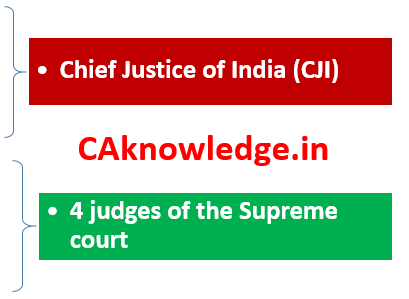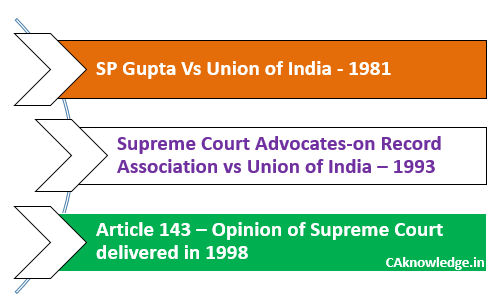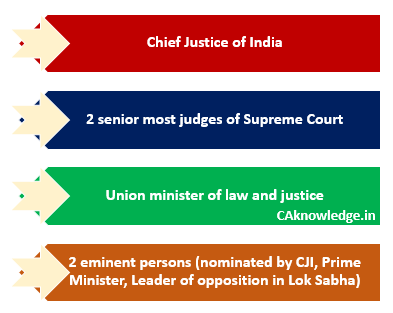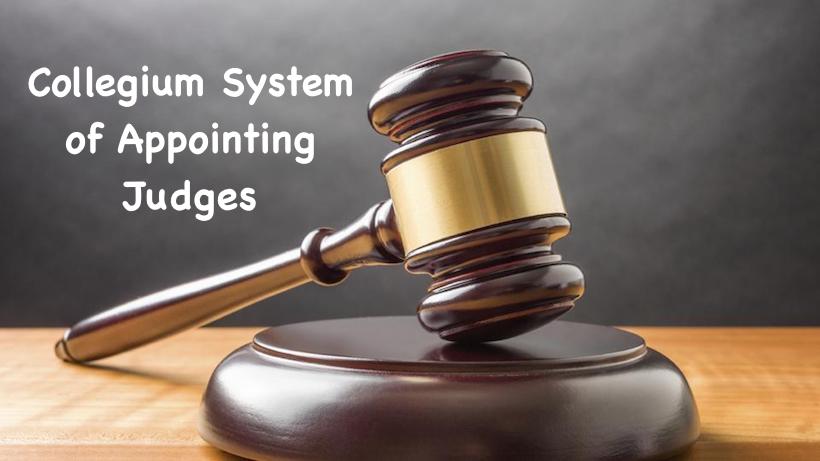Collegium System of Appointing Judges, There has been a lot of discussion and debates on “collegium system” of appointing the judges. Judiciary is one of the main pillars of the nation in a democratic country. Let’s understand the collegium and NJAC system of appointing and transferring the judges. Now check more details forCollegium System of Appointing Judges from below…
Must –Law Making Process
Collegium System of Appointing Judges
1. Collegium:
Collegium is a system under which the decisions related to appointment and transfer of the judges are taken by a body consisting of Chief justice of India, four senior most judges of the Supreme Court. It has no reference in the constitution of India.

2. Appointment of judges as said by constitution:
1. Article 124 – Appointment of Supreme court judges:
Advertisement
Content in this Article
This article of the Indian constitution talks about the appointment of Supreme Court judges. As per this article the judges of Supreme Court should be appointed by the president in consultation with such judges of the High Courtsand the Supreme Court as the President may deem necessary. Except in the appointment of his/her own the chief justice of India should be consulted in all appointments.
2. Article 217 – Appointment of High court judges:
Appointment of the judges of the high court discussed in article 217 of the constitution where it is said that the judges of the high court should be appointed by the president of India in consultation with the chief justice of India and the governor of the state. Chief justice of the concerned high court should also be consulted.
3. Genesis of “collegium system”
The genesis of collegium system lie in the famous “three Judges Cases”, which are:
- SP Gupta Vs Union of India – 1981
- Supreme Court Advocates-on Record Association vs Union of India – 1993
- Article 143 – Opinion of Supreme Court delivered in 1998

Ove the time witnessing these case Supreme Court of India evolved that no other branch of the state including executive and legislative authorities should have a say in appointment of the judges, thus protecting the judicial independent granted by constitution. Collegium system came into picture in this way.
4. Criticism:
A lot of criticism has been made against collegium system of appointment over the time
Those who criticized it as a closed door system of appointment having no transparency. A petition against collegium system has been filed on the very fact that the constitution does not mention it anywhere.
Must Read – Law Making Process
5. NJAC:
NJAC –National Judicial Appointment Commission has been proposed as a reconsideration of the three Judges cases. It consist of
- Chief Justice of India
- 2 senior most judges of Supreme Court
- Union minister of law and justice
- 2 eminent persons (nominated by CJI, Prime Minister, Leader of opposition in Lok Sabha)

With the overwhelming response from the public and state governments with a view to bring in transparency in the process of appointment of judges in the Supreme Court and high courts parliament has passed the NJAC bill in in October 2015 which was struck down by the Supreme Court stressing upon the primacy and independence of the judiciary.

